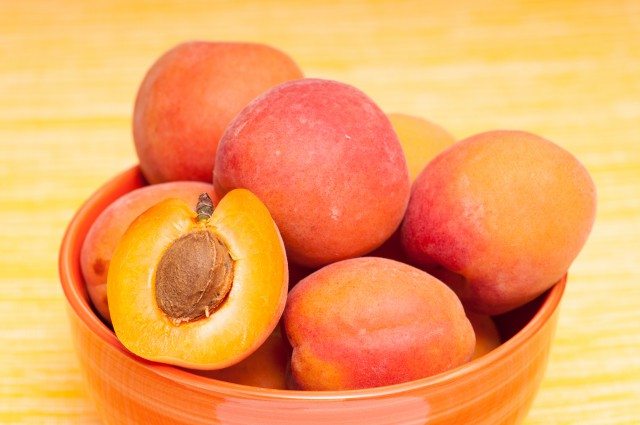Eating more than one large or three small raw apricot kernels in a serving can exceed safe levels.
Toddlers consuming even one small apricot kernel risk being over the safe level.
A naturally-occurring compound called amygdalin is present in apricot kernels and converts to cyanide after eating.
Cyanide poisoning can cause nausea, fever, headaches, insomnia, thirst, lethargy, nervousness, joint and muscle various aches and pains, and falling blood pressure.
In extreme cases, it is fatal.
Studies indicate 0.5 to 3.5 mg cyanide per kg of body weight can be lethal.
The European Food Standards Agency’s (EFSA) Scientific Panel on Contaminants in the Food Chain set a safe level for a one-off exposure (known as the Acute Reference Dose, or ARfD) of 20 micrograms per kg of body weight.
This is 25 times below the lowest reported lethal dose.
Based on these limits and the amounts of amygdalin typically present in raw apricot kernels, EFSA’s experts estimate that adults could consume one large or three small apricot kernels (370 mg), without exceeding the ARfD.
For toddlers the amount would be 60mg which is about half of one small kernel.
Apricot fruit is not affected
Normal consumption of apricot fruit does not pose a health risk to consumers.
The kernel is the seed from inside the apricot stone.
It is obtained by cracking open and removing the hard stone shell and, therefore, has no contact with the fruit.
Most raw apricot kernels sold in the EU are believed to be imported from outside the EU and marketed to consumers via the internet.
Sellers promote them as a cancer-fighting food and some actively promote intakes of 10 and 60 kernels per day for the general population and cancer patients, respectively.










